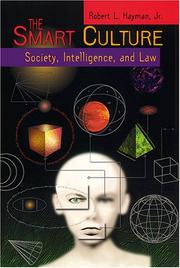| Listing 1 - 2 of 2 |
Sort by
|
Book
ISBN: 9780271079172 9780271079196 0271079193 9780271077086 0271077085 0271077093 9780271077093 0271079177 Year: 2021 Publisher: University Park, PA
Abstract | Keywords | Export | Availability | Bookmark
 Loading...
Loading...Choose an application
- Reference Manager
- EndNote
- RefWorks (Direct export to RefWorks)
"Analyzes the reception of nineteenth-century French women poets, including Marceline Desbordes-Valmore, Amable Tastu, Élisa Mercoeur, Melanie Waldor, Louise Colet, Anaïs Segalas, Malvina Blanchecotte, Louise Ackermann, and Marie Krysinska, to recover the diversity of women's voices. Places their contributions within the medical and literary debate about the sex of genius"--Provided by publisher.
Genius. --- Women poets, French --- French poetry --- French literature --- French women poets --- Creative ability --- Intelligence levels --- History --- History and criticism. --- Women authors --- Literature --- Alphonse de Lamartine --- France --- Romanticism --- Ségalas --- Hautes-Pyrénées

ISBN: 9780814744789 0814744788 0814735339 0814735347 0585002592 Year: 1997 Publisher: New York, NY : New York University Press,
Abstract | Keywords | Export | Availability | Bookmark
 Loading...
Loading...Choose an application
- Reference Manager
- EndNote
- RefWorks (Direct export to RefWorks)
What exactly is intelligence? Is it social achievement? Professional success? Is it common sense? Or the number on an IQ test? Interweaving engaging narratives with dramatic case studies, Robert L. Hayman, Jr., has written a history of intelligence that will forever change the way we think about who is smart and who is not. To give weight to his assertion that intelligence is not simply an inherent characteristic but rather one which reflects the interests and predispositions of those doing the measuring, Hayman traces numerous campaigns to classify human intelligence. His tour takes us through the early craniometric movement, eugenics, the development of the IQ, Spearman's "general" intelligence, and more recent works claiming a genetic basis for intelligence differences. What Hayman uncovers is the maddening irony of intelligence: that "scientific" efforts to reduce intelligence to a single, ordinal quantity have persisted--and at times captured our cultural imagination--not because of their scientific legitimacy, but because of their longstanding political appeal. The belief in a natural intellectual order was pervasive in "scientific" and "political" thought both at the founding of the Republic and throughout its nineteenth-century Reconstruction. And while we are today formally committed to the notion of equality under the law, our culture retains its central belief in the natural inequality of its members. Consequently, Hayman argues, the promise of a genuine equality can be realized only when the mythology of "intelligence" is debunked--only, that is, when we recognize the decisive role of culture in defining intelligence and creating intelligence differences. Only culture can give meaning to the statement that one person-- or one group--is smarter than another. And only culture can provide our motivation for saying it. With a keen wit and a sharp eye, Hayman highlights the inescapable contradictions that arise in a society committed both to liberty and to equality and traces how the resulting tensions manifest themselves in the ways we conceive of identity, community, and merit.
Mental health laws --- Intelligence quotient --- IQ (Intelligence quotient) --- Equal protection of the law --- Intelligence levels. --- Culture and law. --- Equality before the law --- People with mental disabilities --- Civil rights --- Educational psychology --- Law and culture --- Law --- Intellectually disabled persons --- Mental disabilities, People with --- Mentally deficient persons --- Mentally disabled persons --- Mentally disordered persons --- Mentally handicapped --- Mentally retarded persons --- People with intellectual disabilities --- Retarded persons --- People with disabilities --- Intellectual disability --- Mentally ill
| Listing 1 - 2 of 2 |
Sort by
|

 Search
Search Feedback
Feedback About
About Help
Help News
News